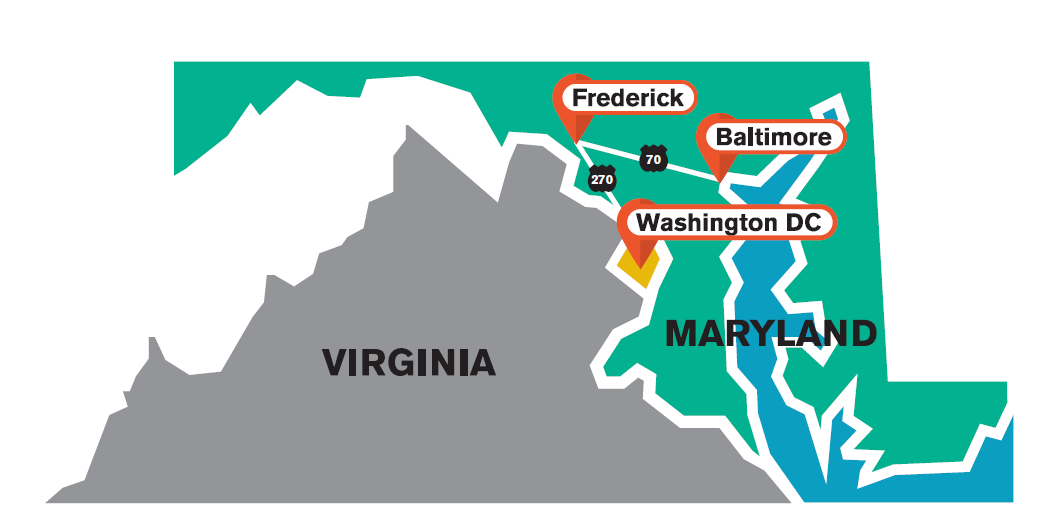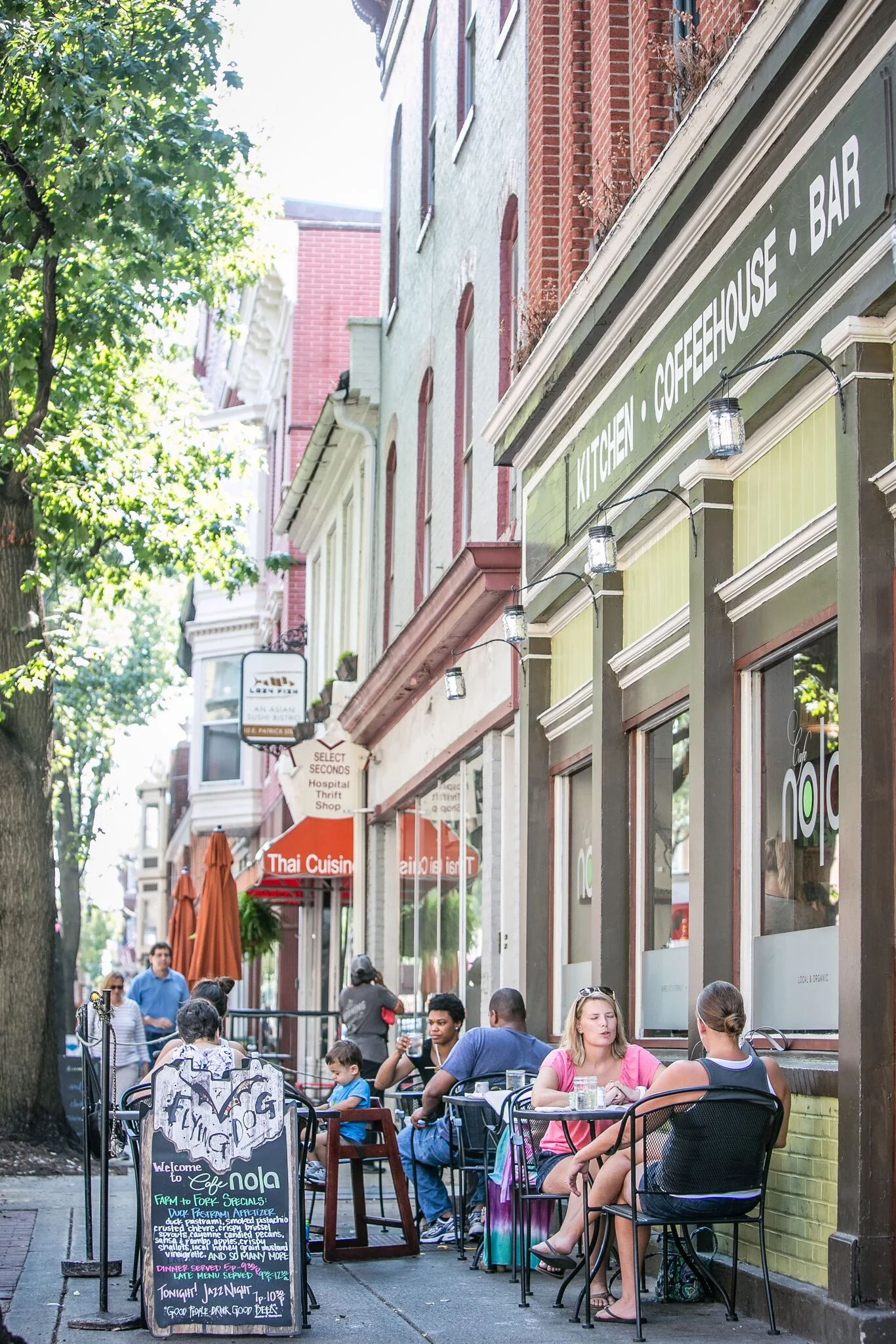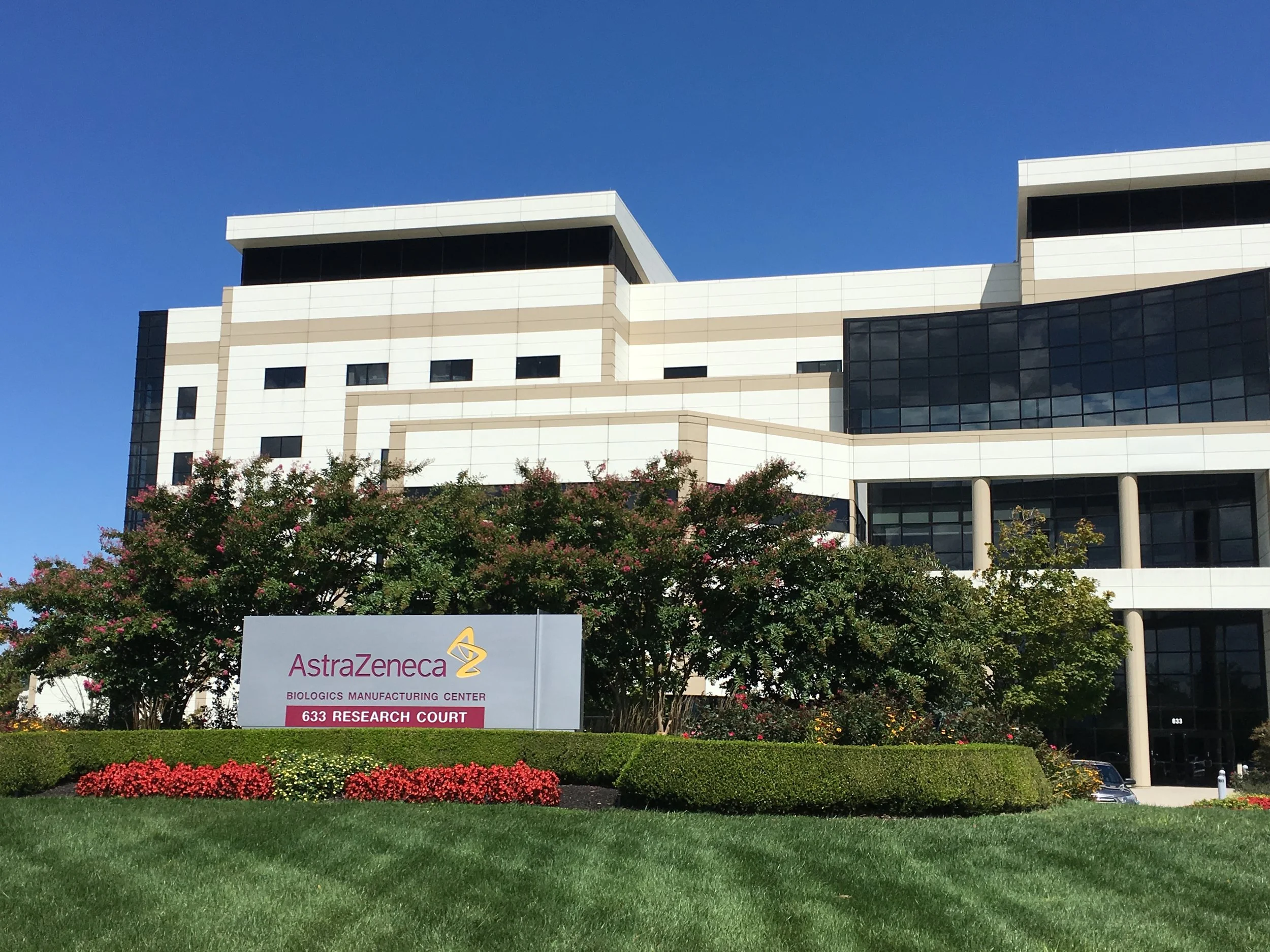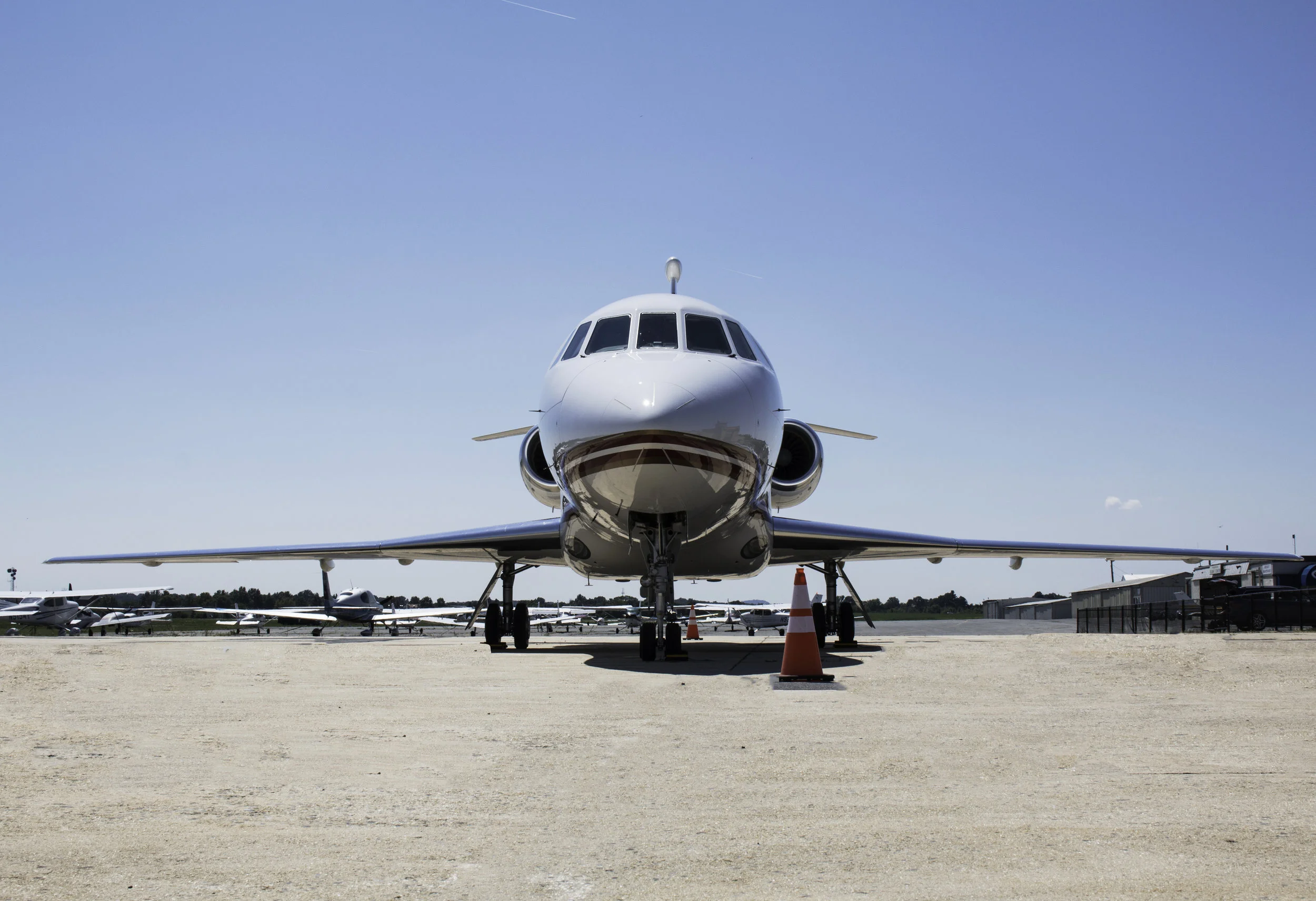The City of Frederick has changed dramatically in the last 20 years -- growing from a sleepy small town to the second largest city in the State. Frederick now stands as the third point in a powerful economic triangle that traces to D.C. and Baltimore.
Home to over 3,500 companies, the City of Frederick has already experienced an explosion of private investment and continues to cause a stir among commercial developer and business communities alike.
Here we take a look at how Frederick has become an attractive marketplace to so many...
Thriving Economy
When accessing prospective ventures, investors seek out opportunities that minimize risks and maximize returns. These conditions are most frequently satisfied within the context of a stable local economy set upon a growth trajectory.
In Frederick, residential and commercial economic data has been strenghtening for the past two decades. In 2017, the City’s population surpassed 70,000 residents for the first time. Continuing the trend, private developers have submitted plans to add hundreds of more rooftops within City limits in the next five years.
A positive indicator for Frederick's future, migration to the City has been particularly popular among the millennial population. Since 2010, Frederick County has added more than three thousand residents in the 25-34 year old age range. The growth rate of this young professional demographic is the highest in Maryland, and even higher than in the Washington-Metro Area.
Development in the local business sector has not only accommodated the population boom – as seen in employment levels of approximately 96% - but has been energized by it. Attracted by the area’s growth patterns, public and private investment capital has begun to flood the area. Most notably, globally-recognized bio-pharmaceutical company, AstraZeneca, invested $200 million in its recent expansion at the Frederick facility. A public investment of approximately two-thirds of a billion dollars in the US Army’s Medical Research Institute for Infectious Diseases added 800,000 SF of improved research space at its Fort Detrick operations.
Lending to the stability of the area, growth in other industries has kept pace with these high-profile bio-focused investments. Demonstrating Frederick’s diverse economy structure, statistics from the Maryland Department of Labor indicated that in 2017 no single industry in Frederick County was responsible for more than 17% of local employment opportunities.
The overwhelmingly positive outlook for Frederick’s economy has paralleled a rise in both commercial and residential property values. The increase represents strong potential returns to current and prospective investors. Most advantageously to investors, Frederick’s property values still remain attractively lower than its neighboring counties to the east. As a result, many businesses are finding that Frederick offers a substantially lower cost of entry, but with matching or even greater rates of return relative to other areas of the D.C. Metro area.
Well-Connected City
The quality of local infrastructure systems carries significant influence on investors’ decisions to enter a marketplace. Seeking to always maximize productivity in a competitive setting, businesses require easy access to utilities, employees, supply chains, customers, and ideas.
Frederick’s strategic proximity to the D.C. and Baltimore marketplaces has historically been and continues to be a key differentiator in economic attraction and retention for the City. With direct access to interstate road systems, I-270 and I-70, Frederick is less than an hour drive from two globally-renowned marketplaces. These economic destinations are additionally accessible through the MARC train line which makes direct travel into a Downtown Frederick station.
The City is also home to Frederick Municipal Airport. With more than 70,000 aircraft landings and takeoffs a year, the airport has historically been the second busiest airport in the State. In 2016, the City began excavation work for a multi-year $40 million aeronautical development capital project. The runway is planned to be lengthened by 600 feet to 5820’ by 2020. New private hangar development opportunities are already immediately available.
Given rapid growth of the City, strategic infrastructure development has demanded local attention for the past two decades. With a vision for capacity, rather than congestion, the City has invested millions in capital projects to parallel the private sector growth. Major projects are currently underway on the US 15 Interchange, Monocacy Boulevard, Route 26, the MD 180 Corridor, and at Frederick’s Wastewater Treatment Plant. Future priority projects include construction of an expanded police headquarters, a widening of Frederick's connection to I-270, creation of a 135-acre recreational facility on Frederick's West Side, the addition of a new Downtown parking structure and the introduction of a City Circulator.
In our digital world, connectivity has extended beyond these physical needs. No longer limited to cutting edge technology companies, every business has come to expect high-speed and reliable internet service. A fiber optic network, currently operated by Lumos Networks, runs through East Frederick, downtown, and along the City’s “Golden Mile” on Route 40, fulfilling this modern necessity.
Pro-Investment City Leadership
The vision and behaviors of a City’s leadership has noteworthy influence on investors’ decisions to enter a marketplace. A long and consistent display of responsive planning at the municipal level signals to investors an easier path to business which will offer reduced risk of delays or unforeseen costs.
Frederick has earned a reputation for its pro-business environment. The City-wide support is notably seen in the contribution of resources towards economic development initiatives. In addition to its extensive infrastructure investments designed by a forward-leaning Planning & Engineering Department, in the early 2000's, the City created a department specifically focused on business-related initiatives. The Department of Economic Development now coordinates across City departments, and with County and State-level agencies to streamline the business processes and advocate for pro-investment policies and procedures.
In 2015, the City of Frederick adopted a 10-year phase out of the business personal property tax. Currently, non-manufacturing personal property is automatically 70% exempt and manufacturing personal property is automatically 82% exempt. The exemptions will increase each year until 2025 when business personal property tax will no longer be assessed.
This business tax repeal compliments the existing incentive programs designed to encourage investors to enter vacant or underutilized properties, revitalize the Golden Mile corridor, strengthen the Downtown core, create energy efficient buildings, and bring new, high-paying jobs to the area.
Development Opportunities Around the City








